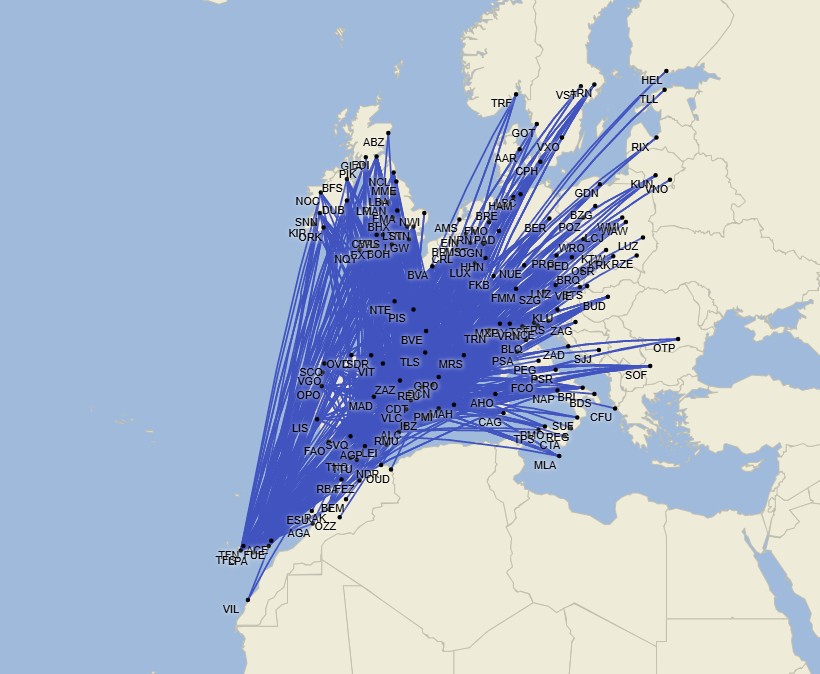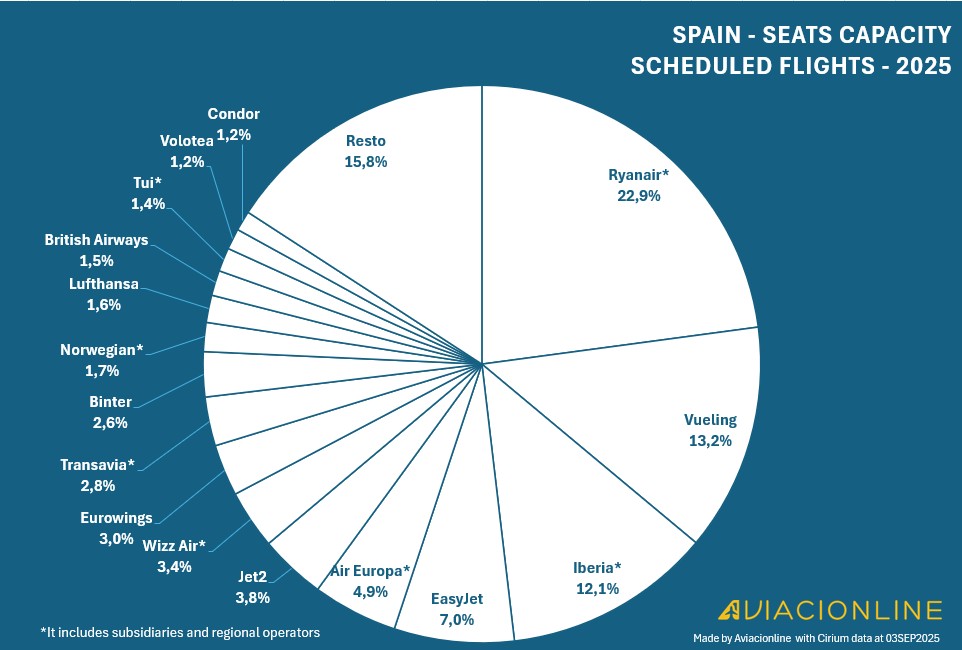Aena's CEO Accuses Ryanair of "Dishonesty" and "Blackmail" Over Tariff Dispute
The President and CEO of Aena (Spanish Airports and Air Navigation), Maurici Lucena, has launched a harsh and detailed accusation against Ryanair, in an unprecedented verbal escalation between the airport operator and its main client. In an official statement, Lucena stated it is hard to find another case where "the discrepancy between a company's operational excellence and the dishonesty of its communication policy is so astonishing."
The document criticizes the "insolence and shamelessness of Ryanair's public demands on democratic governments" to obtain economic advantages. According to Lucena, these actions reveal two characteristics of the airline: first, a "disturbing plutocratic conception of the political system," where they believe decision-making should bow to the interests of the most powerful companies. Second, a communication policy in "permanent and deliberate collision with objective facts and truthfulness."
This comes shortly after Ryanair confirmed at a press conference what had been anticipated a few days earlier, namely that it will drastically reduce its presence at several regional airports in Spain.
The conflict intensifies in the context of Aena's proposal for an increase in airport tariffs for 2026. Lucena defended that the increase, of just €0.68 per passenger, is based on the application of objective mathematical formulas established in the regulatory framework (Law 18/2014). "Everyone knows that a citizen's decision to take a plane does not depend on the ticket costing 68 euro cents more next year," he noted, contrasting this figure with the fact that, "without blushing, the Irish airline has increased its ticket prices by an average of 21% in the last year!".
The statement describes as a matter of "ineffable stupefaction" that Ryanair claims "Spain is currently closed to tourism" in a year when the country is approaching a record 100 million international visitors.
Investments, Sophistry, and Regional Airports
The statement also seeks to bluntly refute several of the airline's recurring claims. Regarding the complaint that Aena's investments are paid for by airlines, Lucena was emphatic: "it is untruthful: all of Aena's investments are paid in full by Aena with its own money." He called the opposing argument a "sophism equivalent to saying that Ryanair's investments when it acquires aircraft for its fleet are paid for by the passengers who buy the tickets."
Aena's president dedicated a significant part of the text to Ryanair's strategy in regional airports. He rejected the argument that the airline cancels routes due to high tariffs, asserting that the reality is "more prosaic": it cancels them because it "moves its planes to airports where it can set higher prices for its tickets and thus earn more money."
Lucena cited the praise from its CEO, Eddie Wilson, for Castellón airport—which he described as an "ill-fated symbol of public waste"—as proof of Ryanair's "true priorities." For Aena's president, this statement was a strategic error that revealed the airline's real intentions: "to put it colloquially: with the praise for Castellón airport, Ryanair showed its true colors." He added that there is nothing wrong with wanting to make money, "but it would be appreciated if Ryanair did not disguise its monetary objective with falsehoods."
Statistical Discrepancies and a Model to Defend
Another point highlighted by Lucena is an apparent manipulation of figures by the airline. He accused Ryanair of using a "statistical methodology [...] to distort the real figures and inflate its message." According to the statement, the number of winter season slots formally requested by the airline "is significantly higher than the figures communicated today by Ryanair in its press conference." Therefore, he concluded: "It is urgent that Ryanair clarifies this quantitative discrepancy."
Finally, Maurici Lucena defended Aena's network model, which promotes territorial cohesion through economic solidarity between large and small airports. He explained that this system, where profitable airports cover the losses of smaller ones, operates without resorting to taxpayer money.
He warned that if Spanish airports were to evolve "to the tune of Ryanair's demands, whining, deceptions, and unbearable strategy of extortion," in the medium and long term, they would cease to function well.
Lucena concluded by acknowledging the historical symbiosis between the two companies but drew a clear line. He stated that Ryanair now wants to "take advantage of its high market share in Spain to transform this symbiotic relationship into a vassal-like relationship, a will that Aena will never accept." He described it as "a pity" that the airline's communication policy is "guided by pharisaism, rudeness, and blackmail."
Ryanair in Spain
The ultra-low-cost carrier has a presence in 24 airports in Spain, operating an impressive network of more than 800 routes.

According to information compiled by Aviacionline through Cirium, Ryanair will offer 69.5 million seats in Spain during 2025, 4 million more than the previous year. This represents almost 23% of all the seat capacity airlines will offer in Spain this year.

The airports where it has a presence during September are: Lanzarote, Málaga, Alicante, Barcelona, Castellón de la Plana, Fuerteventura, Girona, Ibiza, Almería, Gran Canaria, Madrid, Menorca, Asturias, Palma de Mallorca, Reus, Corvera, Santiago de Compostela, Santander, Seville, Tenerife North, Tenerife South, Vigo, Vitoria, Valencia, Valladolid, Jerez de la Frontera, and Zaragoza.

/https://aviacionlinecdn.eleco.com.ar/media/2025/09/ryanair_y_aena.jpg)
Para comentar, debés estar registradoPor favor, iniciá sesión